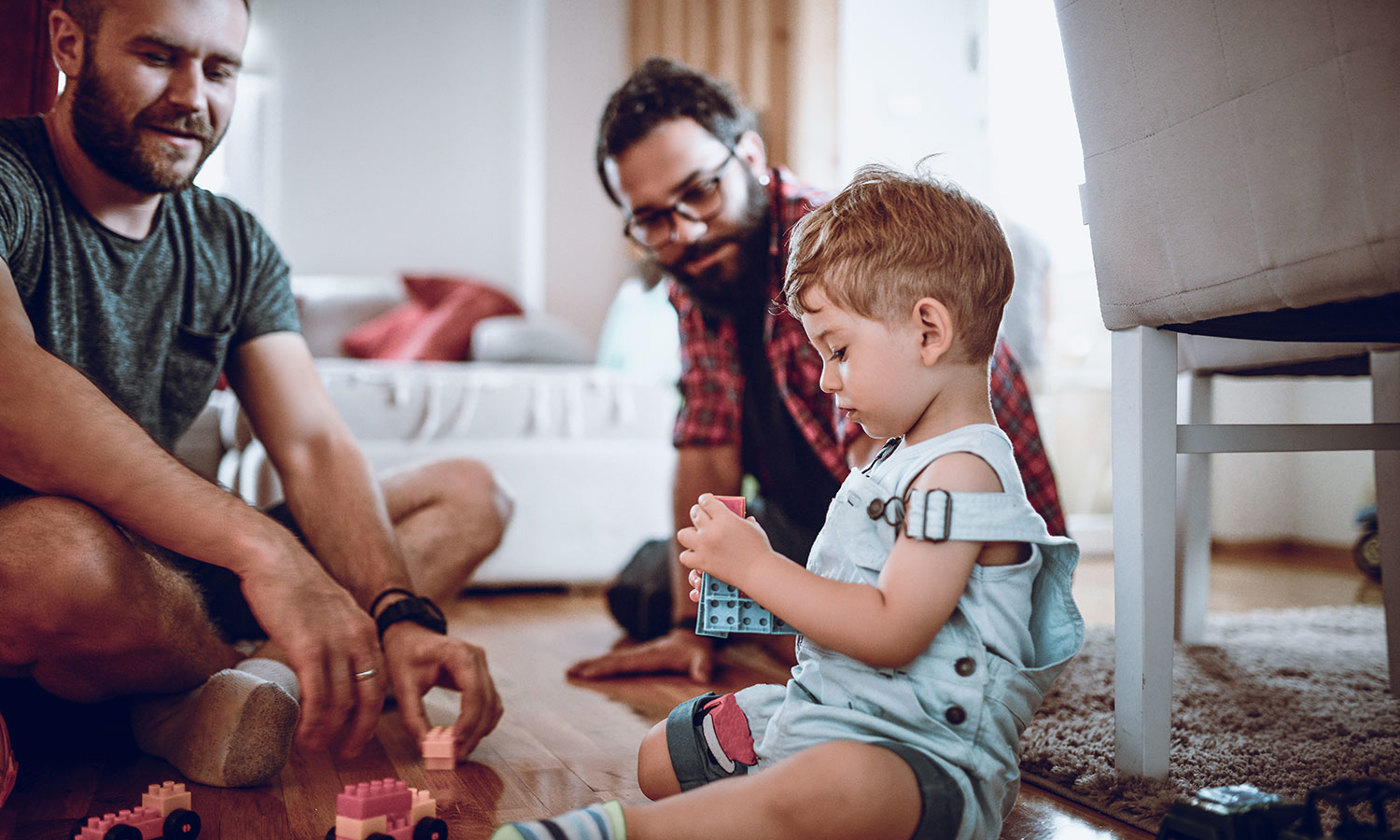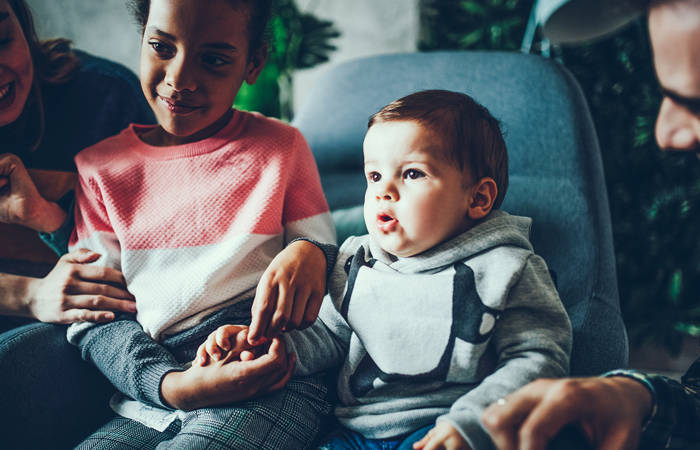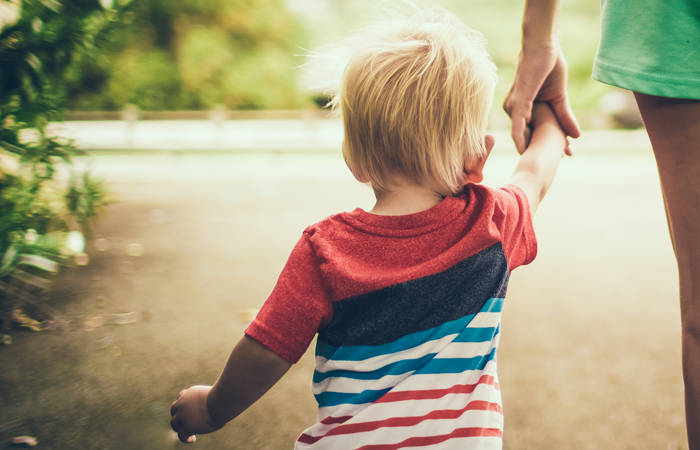Like what you see?
Sign up to receive more free parenting advice.
Thank you for subscribing to our newsletter!
Lifestyle

Credit: AleksandarGeorgiev
This year, Australia is celebrating the sixth-year anniversary since the marriage equality vote – where the definition of marriage in the Marriage Act was changed to, “the union of two people to the exclusion of all others, voluntarily entered into for life”. It not only recognised same sex marriage, but led the way for LGBTQIA+ (lesbian, gay, bisexual, transgender and queer) families to be recognised.
Ashley Scott, Executive Officer at Rainbow Families says LGBTQIA+ families are yet to be accurately recorded in the census, however, the data that is captured shows a huge increase, year on year, for same sex couples with children.
“And we see that increase to be true, and also for other LGBTQIA+ people with children,” he adds.
“As our community is very diverse, our families face a range of individualised challenges depending on their family make up.”
Potential challenges facing LGBTQIA+ families
The first challenge many LGBTQIA+ families face is around their journey to become parents.
“Their pregnancy journey isn’t straight forward and can involve IVF, donors, surrogacy, adoption, fostering and co-parenting,” Scott explains.
“There are challenges around finding out the right information for their family and starting that journey.”
Dr Nicole Highet, Founder and Executive Director of Centre for Perinatal Excellence (COPE) adds that many LGBTQIA+ families find sharing the news of starting a new family challenging due to intrusive questions from friends, family, colleagues and even health professionals.
“While research into perinatal mental health conditions in same-sex parents is limited, one study found that lesbian and bisexual biological mothers were significantly more likely to experience symptoms of anxiety and depression when compared with heterosexual women,” Dr Highet says.
“Non-biological parents can also experience postnatal anxiety and depression, which can often go undiagnosed.”
She adds that just as antenatal classes tend to be geared towards heterosexual couples, LGBTQIA+ parents often report difficulties finding inclusive parents’ groups, particularly for non-birthing parents.
“Once they have children, there are challenges around discrimination, homophobia, biphobia and transphobia that our families face, particularly when they engage in mainstream services,” Scott adds.
This can be as simple as facing forms that aren’t inclusive – allocating the parents details into categories of ‘mother’ and ‘father’ instead of ‘parent 1’, ‘parent 2’, etc.
It can also be as complicated as bullying in the playground once the child reaches school age.
“Any school aged child from a diverse family will have a number of stories about being name called and bullied over having two mothers, or two fathers,” Scott explains.
“Our community also faces unwanted or unnecessary questioning.
“Being part of the LGBTQIA+ community comes with self-advocacy, however, that can be exhausting.
“For example, when an LGBTQIA+ parent goes to hospital with their sick child, many parents report fielding invasive questions on how the child was conceived which has nothing to do with the child’s illness.”
Strategies for supporting LGBTQIA+ families
Rainbow families have created education opportunities for the LGBTQIA+ community, so they are able to get the right information without experiencing the kind of discrimination they may face with mainstream services.
“We have a Making Rainbow Families seminar on the different ways to make a family, an antenatal class, a new parent support group and family catch ups and play groups around NSW. We have created this very safe community,” Scott says.
Dr Highet recommends choosing care providers who are supportive.
“There is no need to be treated any differently to the family who are in the next room,” she says.
She also recommends introducing yourself, including your pronouns, and who your partner is, so that it doesn’t get awkward with people not knowing this information.
“At school, show up as much as possible, whether that’s drop offs, pick ups, helping in the canteen,” Scott advises.
“Being visible in your community can help to normalise your family – for everyone to see that you are just like them.
“Once you are a LGBTQIA+ parent, you have no option but to advocate for your family so that your children will face less discrimination from mainstream services like the school system.”
Scott also recommends connecting with other LGBTQIA+ parents in the local community.
“Having a supportive and safe group to turn to when you are faced with challenges and learn from is really important,” he says.
LGBTQIA+ families need allies
With our diverse community, all parents need to make sure they are raising inclusive and accepting children who are not afraid to stand up for their peers when they see discrimination.
“The LGBTQIA+ community rely on our allies to have our back and look out for us,” Scott highlights.
“We rely on our allies to call out homophobia and discrimination when they see it, so we don’t always have to.”
For parents looking to raise inclusive and accepting young people, Scott advises to start early with conversations about diversity, in the same manner you would about multicultural or multifaith diversity in our community.
“LGBTQIA+ families are just another group that children need to understand are a way of being,” he adds.
“Families need to have age-appropriate conversations with their children.
“Ensuring inclusive books are in the home environment and using them as a springboard to start a conversation about different families is a great opportunity.
“Also, make sure to celebrate local queer events and also use them as another opportunity to start those conversations with your children.”
Inclusive children’s books to start the conversation:
Love is Love by Michael Genhart, PhD
Love Makes a Family by Sophie Beer
And Tango Makes Three by Justin Richardson and Peter Parnell
Pride Puppy! by Robin Stevenson
My Shadow is Purple by Scott Stuart
Making A Baby by Rachel Greener
Queer Heroes: Meet 53 LGBTQ Heroes From Past and Present! by Arabelle Sicardi
Mommy Mama And Me by Leslea Newman
Daddy, Papa, and Me by Leslea Newman
Families Can by Dan Saks







